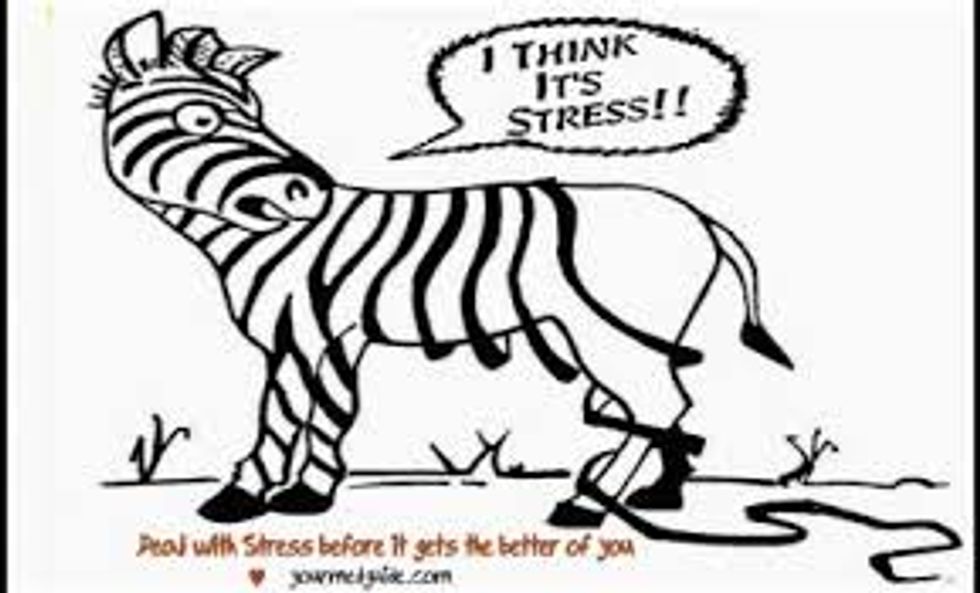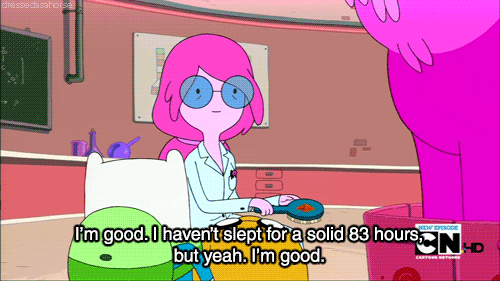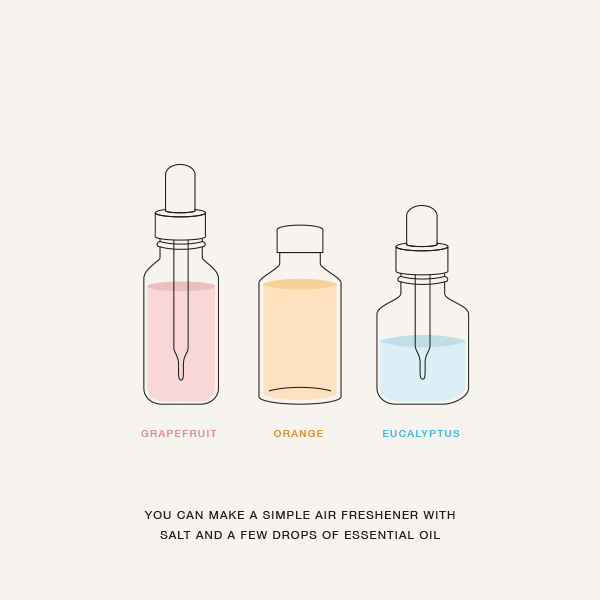As someone who has had problems with chronic anxiety for years, I can hand over-heartedly say that anxiety problems are not something that can be solved in just a few days. It takes constant effort and patience to work out of habits you may have unconsciously spent years creating. Unworking these habits and tendencies are even more difficult when you are also in a stressful situation. You're walking into issues where you don't have the tools you need to help yourself through the problems. It's like walking into a boxing match without a helmet or gloves. When you're preparing to fight mental illnesses or just stress in general, you need to have the right armor on to help yourself. If you just need a refresher to get over the hump of stress, or if you are in a stressful situation and feel like you're drowning in your anxiety, here are some tips to build up your armada of coping mechanisms.
1. Take a timeout
Sometimes the best solutions to our problems can be a simple little change. A little change such as taking a step back from a stressful situation and giving yourself a moment to breathe. By letting go of the stress for a little bit when you can, it allows your body to take a break from the stress responses it's enduring. Being stressed makes you tired, and being excessively tired can make you not think as clearly as you would have. Giving your mind a break is always a solid start to pointing yourself in the right direction to resetting your stress systems.
2. Get enough sleep
Another thing that is a simple change is just making sure you get enough sleep. When you sleep well, you are relaxing and lowering your stress levels, which can also improve your mood and energy. It also helps improve retention of information and increases your ability to pay attention to your goals. Some forms of anxiety may induce insomnia, but there are apps such as the “Nature Sounds relax sleep” that help overcome insomnia. Another thing you can try is stretching from head to toe and relaxing your muscles to ease the tension. I used to do this when I was a little kid and couldn't sleep, and when I did, I would be out within minutes.
3. Welcome humor
There's almost nothing better than having a good laugh with your friends. Laughing is a natural stress reliever that decreases stress hormones and increases immune cells and infection-fighting antibodies, thus improving your resistance to disease. It also triggers endorphins to be released which improves your overall mood.
4. Maintain a positive attitude
As tough as chronic anxiety and consistent stress can be, being positive through a tough situation always puts a light at the end of a tunnel. It's the same reflex that kicks in whenever you are in a tough game or workout and someone cheers you on and tells you that you can do it. You may not have people cheering you on all the time, but you can be your own cheerleader and motivate yourself to get moving. In a world full of hardships and frustration, you can always be kind to yourself and give yourself a break.
5. Talk to someone
This is a tougher thing to work on because it's hard to find someone that you trust enough to tell your problems to. But if you don't have any people that you could trust, seeking out a therapist or a psychiatrist does wonder. I know they have a pretty bad stigma, but the one thing that truly helped me make leaps and bounds over my anxiety is talking to a therapist about it. I was able to voice my concerns and finally release all the tension that I had been unconsciously building up.
6. Learn what triggers your anxiety
Each person that has anxiety or is easily stressed has different things that trigger their own anxiety. It's what makes the field of psychology so difficult to analyze. Each case is different and no two people cope the same. And so when approaching stress, it's really helpful to find out what triggers your unnecessary stress, and then you can specifically work to improve that area.
7. Exercise
I'm not talking about running 3 miles if you can barely run a mile or recommending that you pick up a new sport (although for some people it really helps them). I'm simply recommending doing something to get yourself up and moving. Taking a yoga class or going out for a walk can do just as much for your mind. It helps relieves stress hormones, reduces stress to help you sleep better, as well as helps you build confidence in yourself.
8. Consider natural aides
And no, I'm not talking about Marijuana or other recreational drugs. I'm talking about essential oils. Put simply, essential oils have aromatic, fragrant molecules that can actually pass right through the blood/brain barrier, having a direct effect on your brain that is in charge of controlling your feeling of stress, panic, and anxiety. Some oils that specifically reduce stress are Bergamot, Lavender, Clary Sage, Grapefruit, and Cedarwood.
9. Stay away from alcohol
Unlike in chemistry, alcohol in real life isn't a solution to your problems. And of course this only (should) apply to you if you're of age to drink. You can go out with your friends to have fun, but if you have anxiety, it's a bad thing to add because it can induce depressive episodes. Alcohol may help relax you for a minute, but it's the depressant that does it's job the quickest and the best.










 Photo by
Photo by  Photo by
Photo by  Photo by
Photo by  Photo by
Photo by 















